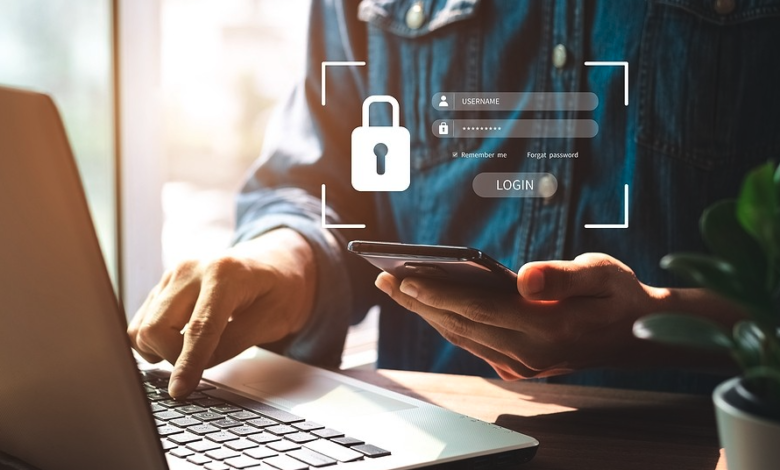5 Security Measures Small Business Owners Should Prioritize

5 Security Measures Small Business Owners Should Prioritize. Small business owners should prioritize the following security measures to protect their operations, data, and assets. By prioritizing these measures, small businesses can reduce their risk of both digital and physical threats.
Install Firewalls and Antivirus Software
Firewalls and antivirus software act as the first line of defense for your business’s network and systems.
- Firewalls monitor and control incoming and outgoing network traffic based on predetermined security rules. They prevent unauthorized users or harmful programs from accessing your network. A well-configured firewall can block malicious attacks, such as hacking attempts, while allowing legitimate business traffic.
- Antivirus software detects, prevents, and removes malware, including viruses, ransomware, spyware, and worms. Keeping your antivirus updated is crucial because new threats emerge frequently. If your systems are compromised by malware, it could result in data loss, system downtime, or unauthorized access to sensitive information. Antivirus software scans files, emails, and attachments, and provides real-time protection against emerging threats.
Data Encryption and Backup
Data encryption and backup are essential for protecting sensitive business and customer data.
- Data encryption converts information into a coded format, ensuring that unauthorized users cannot read it without the decryption key. This measure is particularly important when transmitting data over the internet, such as emails or financial transactions. Encrypting data at rest (stored data) and in transit (data being transferred) ensures that, even if it is intercepted or stolen, it cannot be easily used by attackers. For example, customer payment information, employee records, or proprietary business data should always be encrypted.
- Data backup is the process of copying important data and storing it securely so that it can be restored if the original data is lost or compromised. Backup systems are crucial for protecting your business against data loss due to hardware failures, cyberattacks (like ransomware), accidental deletions, or natural disasters. Backups should be stored off-site or in the cloud to ensure availability even if your physical office is compromised. Automated, frequent backups ensure that you always have recent data to restore.
Secure Access Controls
Access control is the process of regulating who has permission to use business resources like computers, data, and applications.
- Strong passwords: Employees should use complex passwords that combine letters, numbers, and symbols. Passwords should be changed regularly and never reused across different platforms. Many cyberattacks exploit weak or predictable passwords.
- Multi-factor authentication (MFA): MFA adds an extra layer of security by requiring more than just a password to access systems. In addition to the password, users might need to enter a code sent to their mobile device or use a fingerprint scan. This reduces the likelihood of an attacker gaining access to systems even if they steal an employee’s password.
- Role-based access control (RBAC): Not every employee needs access to every system or all business data. By limiting access based on roles, small business owners can minimize the potential damage in case of a data breach or internal error. For example, only the accounting team should have access to financial systems, and only managers should access performance reviews.
Employee Training on Cybersecurity
Human error is often the weakest link in cybersecurity, which is why employee training is essential.
- Phishing awareness: Phishing attacks, where malicious actors trick employees into revealing confidential information or downloading malware through fake emails or websites, are common. Employees should be trained to recognize suspicious emails, attachments, or links. For example, they should avoid clicking on unknown links and verify the sender’s email address before responding to requests for sensitive information.
- Safe internet usage: Employees should understand how to safely browse the internet, avoid downloading files from untrusted sources, and only use secure (https://) websites, particularly when handling sensitive information.
- Password and device management: Employees should be trained to use password managers and avoid using personal devices or public Wi-Fi networks for work without using a virtual private network (VPN). Training them to lock their devices when unattended and ensuring sensitive data is stored securely is key to preventing data leaks.
Physical Security Measures
Physical security helps protect your business from theft, vandalism, and unauthorized access to critical infrastructure, such as servers or important files.
- Surveillance cameras: Installing security cameras in and around your business premises deters criminal activity. Recorded footage can be valuable for identifying individuals responsible for security breaches or property damage. Modern systems also allow for remote monitoring.
- Alarm systems: A robust alarm system can notify business owners and law enforcement of break-ins or unauthorized access. Some systems also detect environmental threats, such as fires or flooding, helping to mitigate damage.
- Secure locks and access control systems: Physical access to critical areas, such as server rooms, should be tightly controlled. This can involve biometric access controls (e.g., fingerprint scanners) or traditional lock-and-key systems. For businesses that handle sensitive customer data or high-value products, advanced access control systems prevent unauthorized individuals from entering restricted areas.




